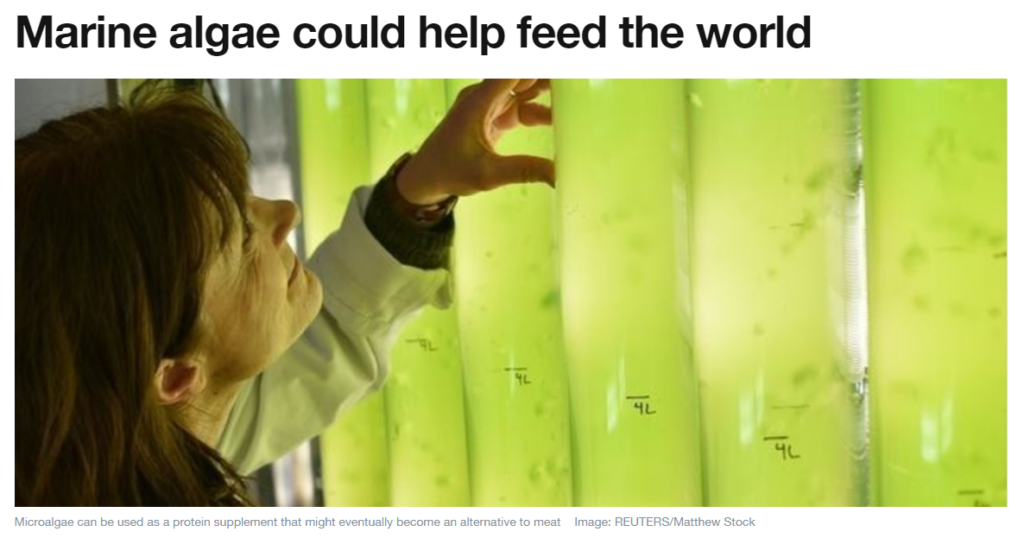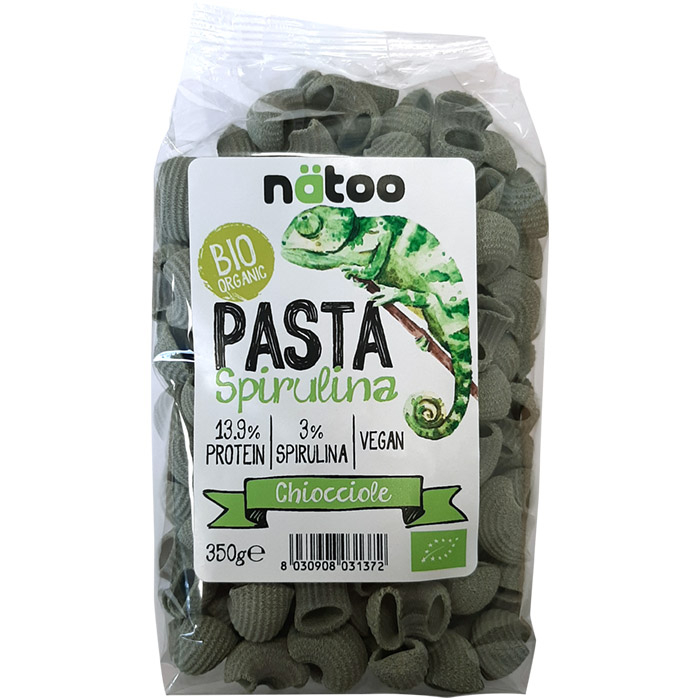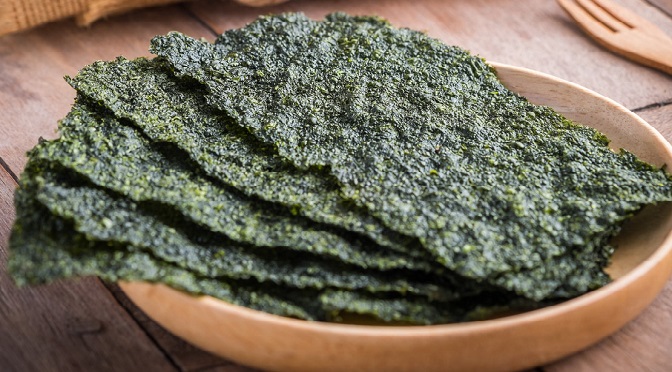Researchers at Flinders University in Australia claim that marine algae may provide a way to create sustainable ‘superfoods’ in the very near future. They claim to be responding to growing interest from consumers in environmentally friendly, sustainable and ‘ethical’ alternatives to traditional forms of animal protein.
Recently we reported that the British government’s National Food Strategy, which stopped short of suggesting a dreaded ‘meat tax’, nevertheless suggested that plant ‘meat’ and food produced by algae would have to be a central part of the British diet in the future if the country is to achieve ‘food security’.
Marine Algae: New Superfood?
Marine algae are single-cell organisms that use photosynthesis, like plants, to produce their energy. And according to Flinders University Professor Wei Zhang, they could be the solution to the world’s ‘meat protein shortage’.
“Our research spans the entire value chain, from microalgae cultivation and circular advanced biomanufacturing to the development of high-value functional food,” Professor Zhang says.
“Microalgae come in a diverse range of nutritional profiles and advanced cultivation strategies can be developed for tuning microalgae to produce protein-, oil- and carbohydrate-dominant types that can be processed into a broad range of functional foods, including healthy cell patties, chips, pastes, jams and even caviar.”

One of the most attractive aspects of cultivation of marine algae is that arable land isn’t required for their production, although they work in more or less the same way as traditional plant crops.
“They are therefore often called the rainforests of the oceans,” says Associate Professor Kirsten Heimann, senior lecturer in biotechnology at Flinders University.
“Using sunlight, photosynthetic microalgae create oxygen and convert carbon dioxide into organic carbon (protein, carbohydrates, pigments, fats, fibres, and micronutrients), just like plants, but do not require valuable arable land for their production. This means microalgae can be sustainably harvested and converted into eco-friendly superfoods.
“Putting one and one together, microalgae and innovative production and processing could help to service the world’s booming population and growing demand for sustainable protein production,” she says.
Professor Zhang is already leading a bid to establish a national Marine Bioproducts Cooperative Research Centre (MB-CRC) in Australia.
The CRC’s mission is to find ways to develop a “third generation” of Australian marine bioindustry. The first generation was fishing, the second “aquaculture” (the controlled “farming” of marine organisms). The aim is to transform Australia’s marine bioproducts sector into a globally competitive industry.
Microalgal products are already on the market; although most are from freshwater rather than marine algae. Two freshwater microalgal products currently on the market are the high protein Chlorella and Spirulina varieties used in the production of foods such as green pasta, drinks and beverages.

Marine species are of particular interest because they do not require scarce freshwater. Their nutritional profiles are also touted, such as their high DHA and EPA content (long chain omega 3 fatty acids), which are essential for infant and brain development and cardiac health.
It is also claimed that bioreactors for upscaling upscaled aquatic production of photosynthetic microalgae can help to combat greenhouse gas emissions and climate change. One 90 x 90 x 210 cm (3 x 3 x 7 ft) bioreactor unit can absorb up to 400 times more carbon dioxide than the same footprint of trees.
Along with research into processing techniques, the team by Professor Zhang is also investigating the use of waste or harvested seaweed for the production of biodegradable plastics. We’ve already talked in detail about the global plastic, especially microplastic, menace, which includes the transmission of hormone-disrupting chemicals (xenoestrogens).
Microplastics are quite literally everywhere now. They’ve even been detected in honey, and scientists have tracked their movement around the world like ‘a force of nature’.
Here at Herculean Strength, we’ve been paying close attention to new developments in food technology, especially in plant-based foods. On the basis of what we’ve seen, we’re liable to be skeptical about the health and the environmental claims that are made in their favour.
For instance, it’s well established that children suffer stunting and developmental problems if they’re fed a plant-based diet. In extremely serious cases, children have even died. Food scientists themselves have even been forced to admit that plant-based ‘meats’ are just another variety of unhealthy processed food.
So our attitude is, we’ll believe it when we see it. In the meantime, we suggest sticking to the highly nutritious whole foods that have sustained our ancestors since time immemorial.
The question remains, though, whether in the coming years that choice will remain open to us, or whether we’ll be forced to eat these new ersatz foods. Only time will tell…

Don’t hesitate to email us at [email protected] for personalized coaching and a client questionnaire if you’d like DEDICATED tailor-made personal training on strength training, building muscle, losing fat, developing athleticism, and more — all to your liking, lifestyle, habits, and taste!
Otherwise, don’t forget to claim your FREE eBook detailing how to lose 20lb of fat while building muscle in 12 weeks! You can claim it here.
Alternatively, you can pick up a FREE eBook on fundamental strength principles offering an introductory workout program.











